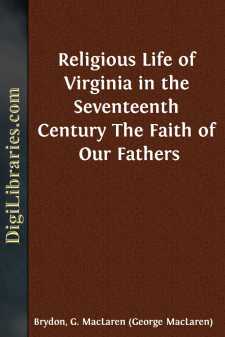Categories
- Antiques & Collectibles 13
- Architecture 36
- Art 48
- Bibles 22
- Biography & Autobiography 815
- Body, Mind & Spirit 144
- Business & Economics 28
- Children's Books 18
- Children's Fiction 14
- Computers 4
- Cooking 94
- Crafts & Hobbies 4
- Drama 346
- Education 58
- Family & Relationships 59
- Fiction 11833
- Games 19
- Gardening 17
- Health & Fitness 34
- History 1378
- House & Home 1
- Humor 147
- Juvenile Fiction 1873
- Juvenile Nonfiction 202
- Language Arts & Disciplines 89
- Law 16
- Literary Collections 686
- Literary Criticism 179
- Mathematics 13
- Medical 41
- Music 40
- Nature 179
- Non-Classifiable 1768
- Performing Arts 7
- Periodicals 1453
- Philosophy 65
- Photography 2
- Poetry 896
- Political Science 203
- Psychology 44
- Reference 154
- Religion 515
- Science 126
- Self-Help 85
- Social Science 82
- Sports & Recreation 34
- Study Aids 3
- Technology & Engineering 59
- Transportation 23
- Travel 463
- True Crime 29
Our website is made possible by displaying online advertisements to our visitors.
Please consider supporting us by disabling your ad blocker.
Religious Life of Virginia in the Seventeenth Century The Faith of Our Fathers
Categories:
Description:
Excerpt
The settlement of Englishmen at Jamestown in 1607 was the outgrowth of a vision of transatlantic expansion which had been growing stronger steadily during the preceding generation. It was in the following of that vision that Queen Elizabeth granted to a group of men headed by Sir Walter Raleigh the authority to establish a colony upon the remote shores of the Atlantic ocean, and out of the plans of this group came the ill-fated colony which was started at Roanoke Island, in what is now the State of North Carolina, in the year 1585. This colony after a life of a few years disappeared: whether destroyed by Indian attack, or by a Spanish fleet which resented the settlement of Englishmen in a land that was claimed for Spain, or by famine or disease, no one knows to this day. The one permanent result was the giving of the name Virginia to their American land in honor of their Queen.
Following the failure of this first effort, a plan was formulated and established by charter given by King James in the year 1606. Under this charter companies were to be formed in order to found two English settlements in America; one to be a colony at some point between the 34th and 41st degrees of latitude, and the other between the 38th and 45th degrees. Both companies had the widespread interest of the English people, and both made settlements in America in the same year, 1607. The Virginia Company established its settlement at Jamestown, from which developed the Colony, and later the Commonwealth of Virginia, as the first permanent English settlement in America. The Plymouth Company made its settlement upon the coast of what is now Maine; but this effort failed and the colonists returned home in the following year. Permanent settlement of New England began in 1620 with the coming of the Pilgrims to Plymouth, Massachusetts. From these two first settlements thus widely separated, but with their common ideal of English civilization and English concepts of freedom and self-government, has grown the American nation of today. This nation, while welcoming all the gifts and values which people of other nations have brought to the enrichment and broadening of our common life, is still basically an English or Anglo-Saxon nation.
Many impelling motives animated the men who organized the Virginia company and labored for the establishment of a colony in America. They wanted of course the expansion of British trade and a wider market for British manufactures; and they naturally hoped for financial profit from their investment in shares of stock in the companies. They planned, also, not merely trading posts in a foreign land as in India and elsewhere, but an extension and expansion of the empire of Great Britain.
A most important part of their plan was to make colonies the answer to a problem which was pressing for solution: the problem of what to do with the increasing overplus of population in many of the cities of England. The danger of a population too great for the land of England to support and feed was a real one. A colony to which England could send her overplus population as part of a greater England was a real solution, and a better one than would be the raising of grain and foodstuff by foreign countries to feed the hungry of Great Britain. That men were thinking along this line appears from the action of certain large towns in paying the expense of the voyage of young people by the score or hundred to Virginia, and from the plan soon after the first settlement, whereby young women of reputable families were sent to Virginia to become wives of the colonists.
And still another motive was the religious one. The Virginia Company kept constantly in the forefront their plan to Christianize the Indians. Their plan as they began to put it into effect included the establishment of parishes and the selection of fit clergymen to go overseas; to establish a University with a college therein for Indians, and to take Indian youths into English families to fit and prepare them for their college....


